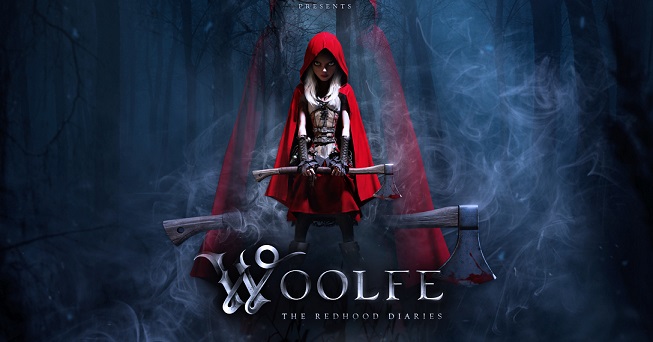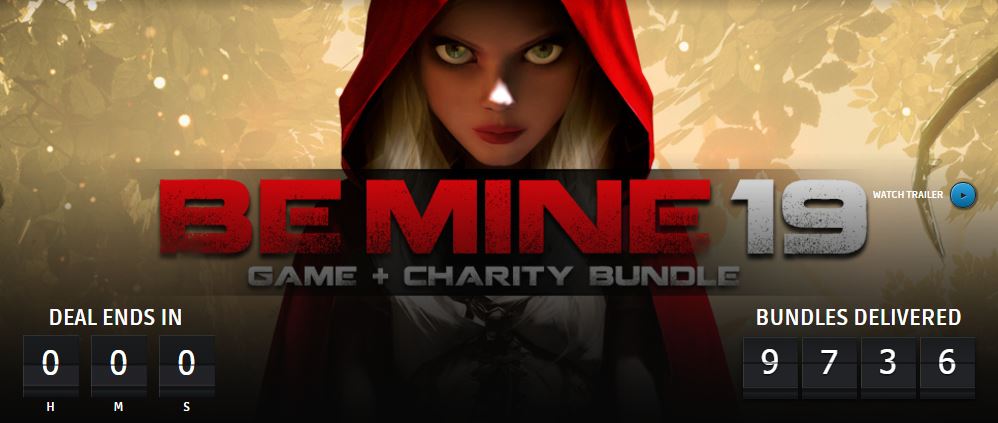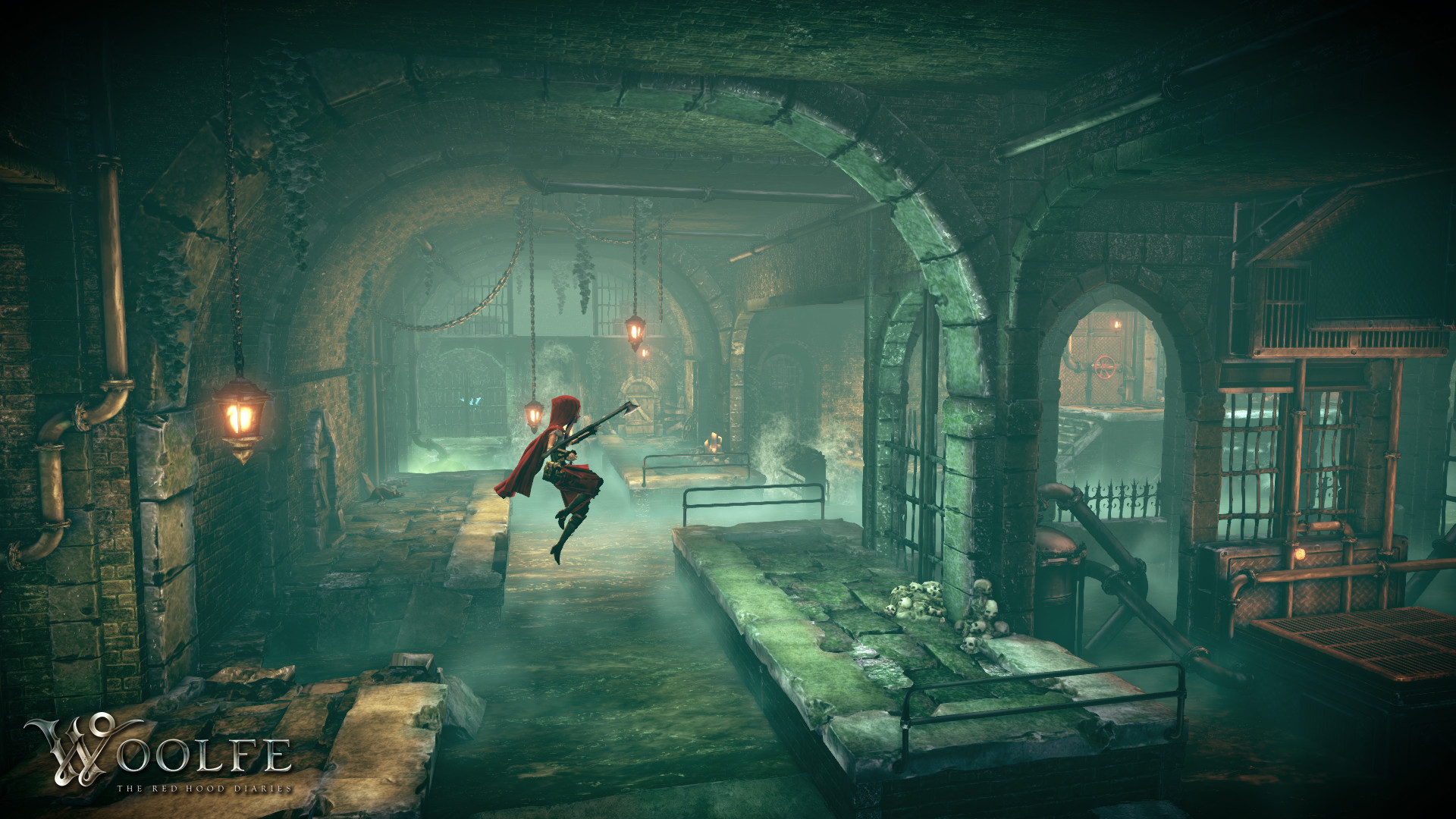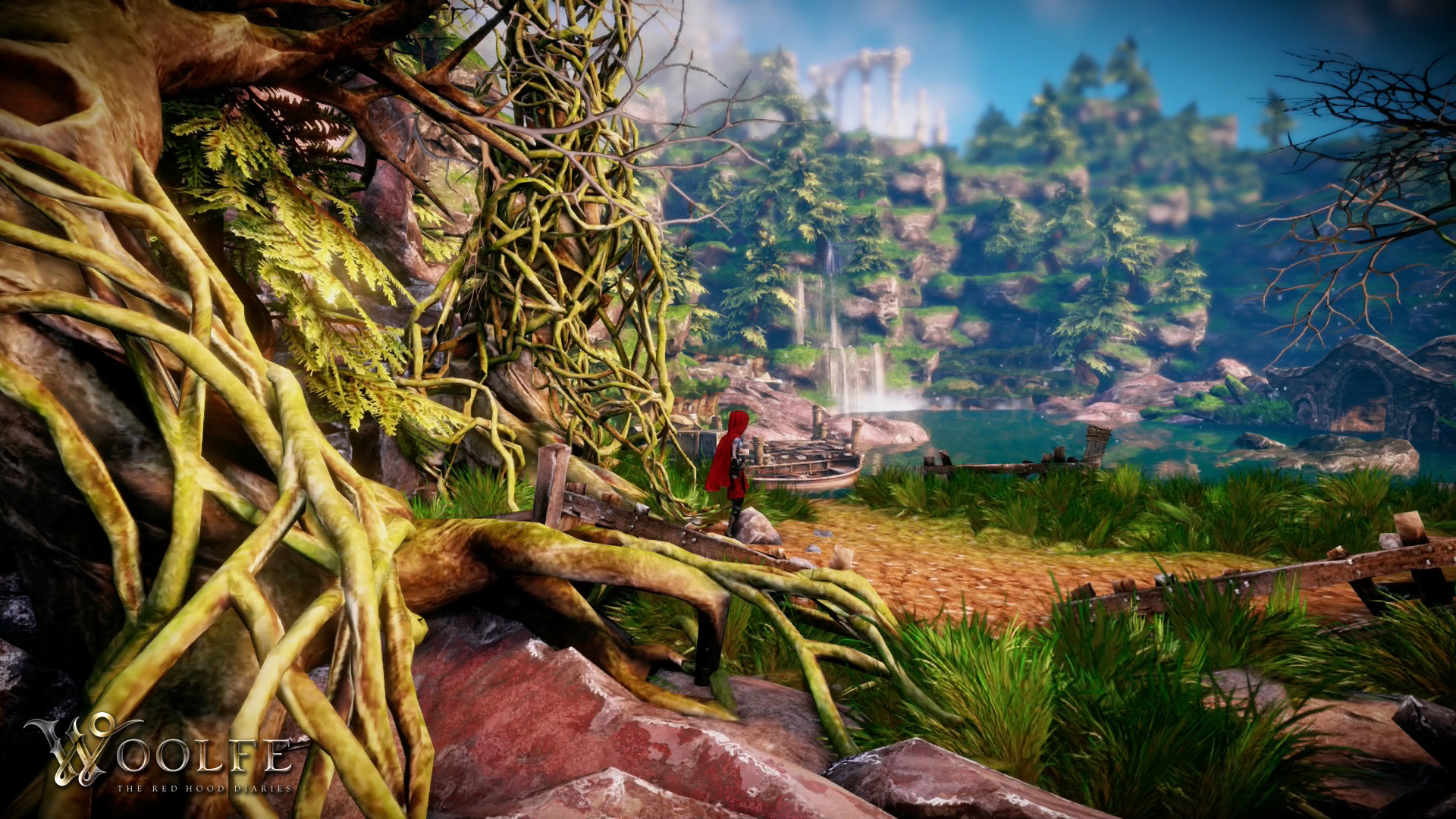[dropcap size=big]W[/dropcap]oolfe – The Red Hood Diaries hit Kickstarter with a fantastic concept back in 2014. Seriously, who wouldn’t want to play an action platformer where you play as a “vengeful Red Riding Hood?” It’s no wonder why developer GRIN Gamestudio made $72,193 in all, about $20,000 over their actual funding goal. Armed with funding, the team went to work and did something many Kickstarters fail to — they released a product right around their estimated Kickstarter delivery date! The title hit Steam Early Access in January and the first episode launched in full form on March 17, 2015.
Throughout these time frames, PC gamers as well as the press generally voiced their disapproval of the game. Woolfe – The Red Hood Diaries looked absolutely awesome, but many took issue with the combat system, brevity, and platforming/camera, among other things. If you trust SteamSpy’s data, then there are somewhere around 30,000 and 40,000 people who have the game in their Steam library. A $9.99 copy selling that much seems like an awesome success for an indie developer, right? Not so fast. First, we’ve got to remove around 2,000 backers who received free game keys. Then there’s the matter of bundle sales. GRIN bundled their title at least twice, once with Indie Gala and Groupees, which sold the game amongst many others – likely resulting in lower than $1 per purchase. Groupees’ bundle sold nearly 10,000 times. How many keys did Indie Gala receive? That info isn’t publicly available anymore, unfortunately.
Then there’s the matter of discounts on Steam itself where Woolfe – The Red Hood Diaries went 50% off in May. That take isn’t nearly as bad as the one from bundles, but it’s safe to say that a huge chunk of sales were not made at anywhere near full price. All of this behavior is nothing new to those of us who watch PC game sales and bundles. Developers often seem to seek out additional sales by “any means possible” when they’re faced with some seriously dangerous money troubles. As we’ve learned this week, that’s exactly what happened with GRIN. Their game, originally devised as a 2D platformer, was allowed to grow far too much in development which required far more work and expense than accounted for. Not only will the game never see its second episode, GRIN themselves are bankrupt and have closed down.
What does this mean for the over 2,000 backers of the project? Well, hopefully you received a digital game key if you backed at such a reward, as that appears it’s all you will have to remember the campaign by. GRIN confirmed they will not be able to ship out rewards even though most are otherwise ready to go. Postage is a huge expense which it seems was not collected as part of the Kickstarter. Tons of crowdfunding campaigns have found themselves destroyed by physical rewards. Although it doesn’t appear that was the main cause of destruction here, it’s definitely an issue to view carefully. They expended the money required to actually print out rewards of various types and are now stuck with expensive boxes of inventory on their hands which will never even make it to their fans!
Of course, in many ways, this exemplifies the “funding” nature of Kickstarter. Backers are putting cash on projects they want to see come to life. They also really would love to get a cool digital or physical trinket, in my occassions. With that said, Kickstarter is not a pre-order stop even though so many use it as such. Does that mean GRIN should be able to walk away from their promises of awesome rewards? Not necessarily. It would probably be much too difficult to provide rewards to every tier that needs them out of pocket. Even so, they could still allow the potential for seriously diehard backers to pay a shipping fee to get their reward if they still desire it. A simple solution would be to provide digital copies of artbooks and posters, thereby avoiding the shipping process entirely.
At the very least, Woolfe – The Red Hood Diaries launched (well, half of it did, at least). During the campaign, there was suggestion – but never an overt promise – to bring this game to PlayStation 4 and Xbox One. Later on, this was seemingly partially confirmed by an E3 trailer with Xbox One logo. No console versions have launched as of yet and at this point it seems entirely unlikely to ever happen. With that said, the official post fails to mention anything about the console release. The closest acknowledgement is via the following quote: “all interested publishers have backed off and we no longer have the financial means to self publish.” Although this may not be related to console publishing, it does squash much hope that a company will swoop in at the 13th hour to save GRIN from their financial woes.
But… there may still be hope for Woolfe – The Red Hood Diaries. Although this game is definitely the “baby” of GRIN’s passionate team, they are willing to sell the IP along with all assets and source code to the game. This means that another developer could pick up where they left off and create a second episode or whatever they wished with the franchise. Will anyone do so? It’s impossible to know, but is not a possibility which can be completely ignored.
There’s always an initial urge to become angry when a Kickstarter fails in any sense of the word. Even though Woofe – The Red Hood Diaries’ campaign produced a functional video game, the lack of backers getting rewards stings. I didn’t back the game at any tier and it makes me frustrated for those backers, especially any who paid with hopes of a cool reward specifically. On the other hand, we all know that nothing provided on Kickstarter is a 100% secure promise. We must all ensure we back campaigns responsibly so in events such as these we aren’t left with a huge feeling of regret.
Campaign leads, too, should hire help specifically with estimating costs associated with development as well as campaign reward procurement. Too many avoid this at their peril. For now, let’s hope that the tale of Woolfe – The Red Hood Diaries may eventually have a more positive conclusion.







I didn’t back the campaign either, but I did pick up the first half either during the Steam sale or in one of the bundles (I can’t honestly remember which). While I did find the camera and controls a bit too frustrating I thought the rest was beautifully done. I love a good “fractured fairy tale”, even if it is an action platformer. That’s what I loved about American McGee’s Alice games.
While I’m bummed to not be able to see the last half I do feel for those who backed at tiers that get more than the game itself. With the VERY rare exception I haven’t had a project do that to me yet, although a few have sent out less than stellar physical goodies (I’m looking at you, Leisure Suit Larry).
I’m bummed about this one as well. I know it didn’t do really well from a review standpoint, but it was cool seeing an indie developer trying for AAA quality in the indie game space. Pixel art and all that is fine, but sometimes I want a game that shows off a bit.